
Cluj-Napoca: The Heart of Transylvania
Welcome to Cluj-Napoca, a vibrant and historic city situated in the heart of Transylvania, Romania. Known for its eclectic mix of Gothic, Baroque, and modern architecture, Cluj-Napoca is a city that effortlessly blends the old with the new. Wander through charming cobblestone streets, explore ancient churches, and immerse yourself in the rich cultural tapestry that defines this unique destination. Cluj-Napoca is not just about its historical landmarks; it's also a bustling university town filled with youthful energy. The city is home to numerous festivals and events throughout the year, including the renowned Transylvania International Film Festival. With a thriving arts scene, you'll find plenty of galleries, theaters, and live music venues to keep you entertained. Nature lovers will appreciate the city's green spaces and nearby natural attractions. The Botanical Garden offers a serene escape within the city, while the Apuseni Mountains and Turda Gorge provide opportunities for hiking and outdoor adventures just a short drive away. Whether you're a history buff, a culture enthusiast, or an outdoor adventurer, Cluj-Napoca has something to offer every traveler.
Local tips in Cluj-Napoca
- Visit Piata Unirii, the main square, to see St. Michael's Church and the statue of King Matthias Corvinus.
- Explore the Central Park and rent a boat on the small lake for a relaxing afternoon.
- Don't miss the chance to try traditional Transylvanian cuisine at local restaurants.
- Use public transportation or walk; the city center is compact and easy to navigate.
- Check the local calendar for festivals and events during your stay for an authentic experience.
- Visit the Turda Salt Mine, a short drive from the city, for a unique underground adventure.
- Stop by the Cluj-Napoca Botanical Garden for a peaceful retreat and beautiful plant collections.
Cluj-Napoca: The Heart of Transylvania
Welcome to Cluj-Napoca, a vibrant and historic city situated in the heart of Transylvania, Romania. Known for its eclectic mix of Gothic, Baroque, and modern architecture, Cluj-Napoca is a city that effortlessly blends the old with the new. Wander through charming cobblestone streets, explore ancient churches, and immerse yourself in the rich cultural tapestry that defines this unique destination. Cluj-Napoca is not just about its historical landmarks; it's also a bustling university town filled with youthful energy. The city is home to numerous festivals and events throughout the year, including the renowned Transylvania International Film Festival. With a thriving arts scene, you'll find plenty of galleries, theaters, and live music venues to keep you entertained. Nature lovers will appreciate the city's green spaces and nearby natural attractions. The Botanical Garden offers a serene escape within the city, while the Apuseni Mountains and Turda Gorge provide opportunities for hiking and outdoor adventures just a short drive away. Whether you're a history buff, a culture enthusiast, or an outdoor adventurer, Cluj-Napoca has something to offer every traveler.
When is the best time to go to Cluj-Napoca?
Iconic landmarks you can’t miss
Central Park Simion Bărnuțiu
Experience the lush landscapes and cultural essence of Central Park Simion Bărnuțiu in Cluj-Napoca, a serene escape in the city's heart.
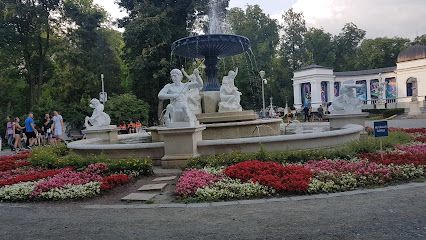
Alexandru Borza Botanical Garden
Discover the enchanting Alexandru Borza Botanical Garden in Cluj-Napoca, a vibrant oasis of diverse flora and serene landscapes perfect for nature lovers.
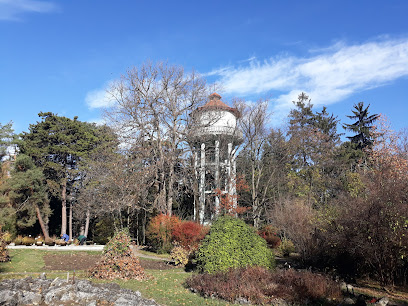
Cheile Turzii
Experience breathtaking landscapes and diverse hiking trails in Cheile Turzii, Romania's stunning national reserve, perfect for adventure seekers and nature lovers.
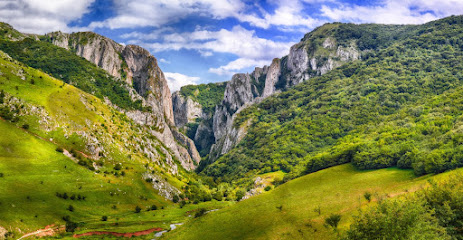
Cetățuia Park
Explore the lush beauty and historic charm of Cetățuia Park in Cluj-Napoca, a perfect escape for nature lovers and culture enthusiasts.
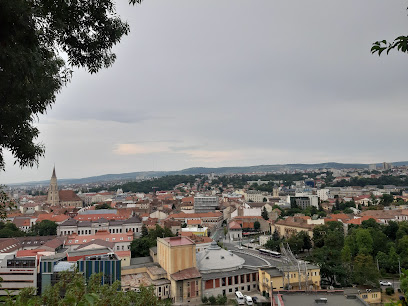
Unirii Square
Explore the vibrant Unirii Square in Cluj-Napoca, where history, culture, and community converge in a picturesque setting.
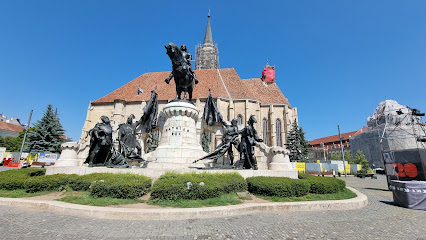
Parc Iulius Mall
Explore Parc Iulius Mall in Cluj-Napoca for shopping, dining, and entertainment in a beautiful park setting, perfect for tourists and locals alike.
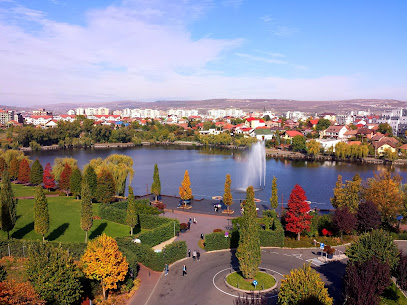
Students' Cultural House
Discover the vibrant cultural scene at the Students' Cultural House in Cluj-Napoca, a hub for artistic expression and community gatherings.
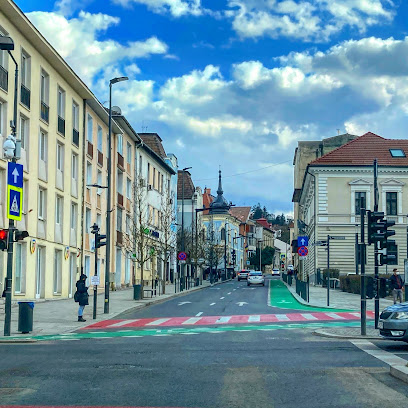
Ethnographic Park Romulus Vuia
Explore the Ethnographic Park Romulus Vuia, a captivating open-air museum in Cluj-Napoca showcasing the rich cultural heritage of Romania through authentic exhibits.
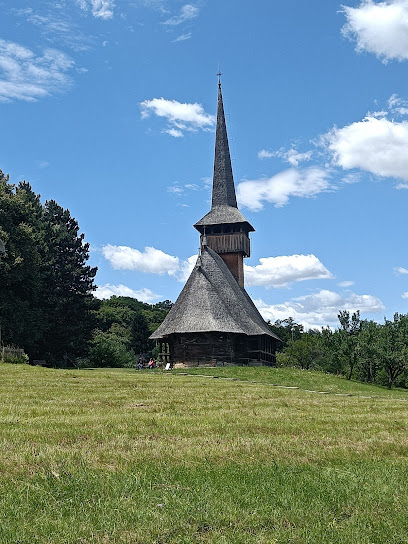
Turnul Croitorilor
Explore the historical beauty of Turnul Croitorilor, a captivating landmark in Cluj-Napoca showcasing rich heritage and stunning architecture.
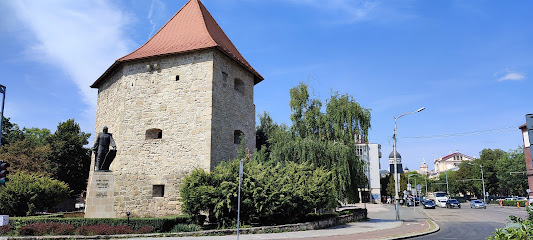
The Art Museum
Explore the artistic treasures of Cluj-Napoca at The Art Museum, a cultural gem showcasing a rich collection of art and heritage.
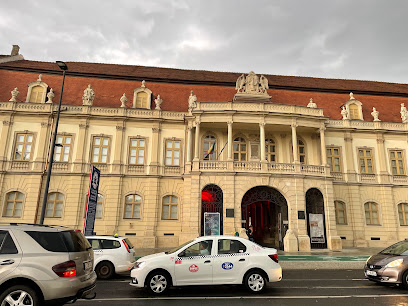
Ethnographical Museum of Transylvania
Explore the rich cultural heritage of Transylvania at the Ethnographical Museum, a treasure trove of artifacts and traditions in Cluj-Napoca.
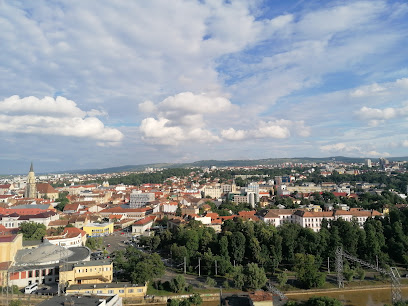
Steampunk Transylvania
Experience the fusion of art and technology at Steampunk Transylvania, where Victorian charm meets futuristic imagination in Cluj-Napoca.
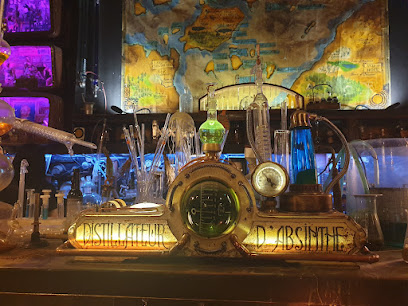
Biserica Piaristă Cluj-Napoca
Explore Biserica Piaristă in Cluj-Napoca, a historical Catholic church showcasing stunning Baroque architecture and rich cultural heritage.
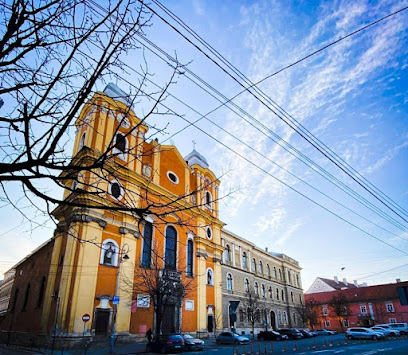
The Statue of Avram Iancu
Explore the Statue of Avram Iancu in Cluj-Napoca, a historic symbol of Romania's fight for freedom, surrounded by vibrant culture and stunning architecture.
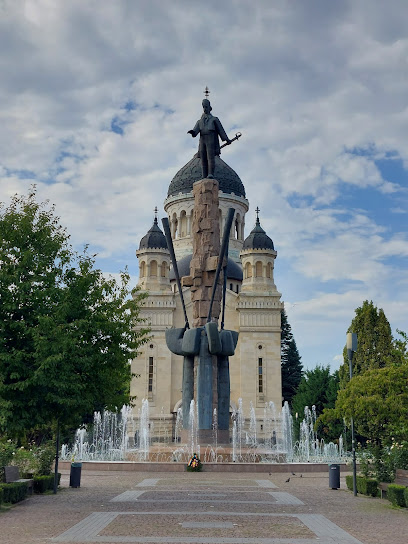
The National Museum of the History of Transylvania
Explore the National Museum of the History of Transylvania, where centuries of history come alive through captivating exhibits and artifacts.
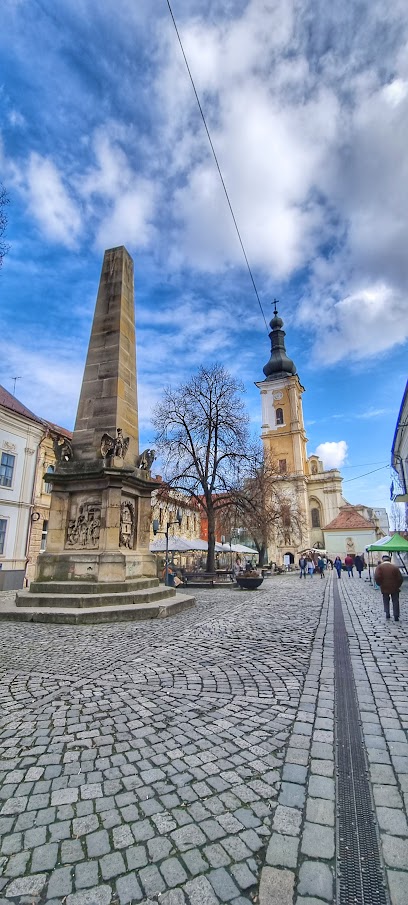
Unmissable attractions to see
Salina Turda
Explore the majestic Salina Turda, an ancient salt mine transformed into a breathtaking underground attraction filled with history and adventure.
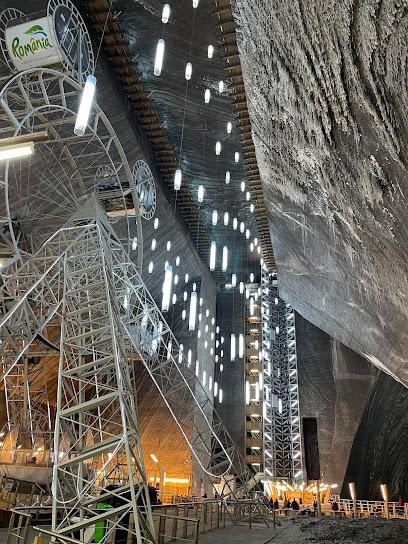
Central Park Simion Bărnuțiu
Discover the serene beauty of Central Park Simion Bărnuțiu in Cluj-Napoca, a lush urban oasis perfect for relaxation and outdoor activities.
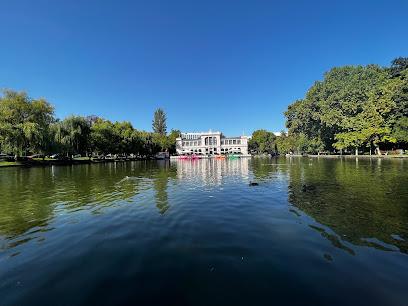
Central Park Simion Bărnuțiu
Discover the tranquility and beauty of Central Park Simion Bărnuțiu, a lush green retreat in Cluj-Napoca perfect for relaxation and exploration.
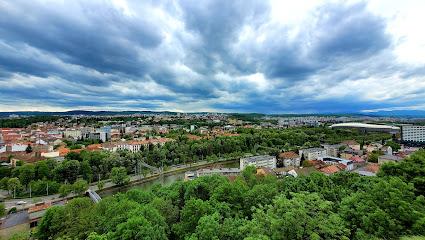
Alexandru Borza Botanical Garden
Immerse yourself in nature at the Alexandru Borza Botanical Garden, a peaceful retreat with diverse plants and beautiful landscapes in Cluj-Napoca.
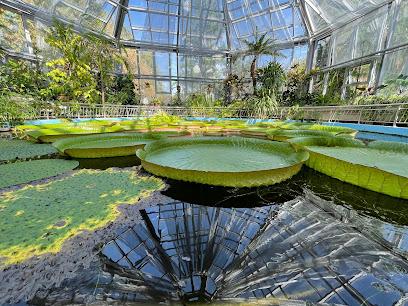
Alexandru Borza Botanical Garden
Explore the stunning Alexandru Borza Botanical Garden, a vibrant oasis of flora in Cluj-Napoca, perfect for nature lovers and peaceful retreats.
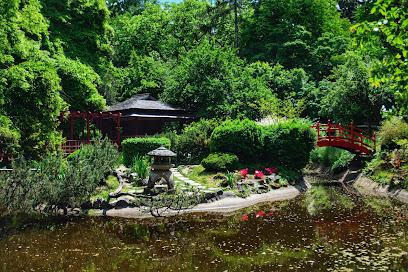
Cheile Turzii
Explore the breathtaking landscapes and rich biodiversity of Cheile Turzii, a premier national reserve and tourist attraction in Romania.
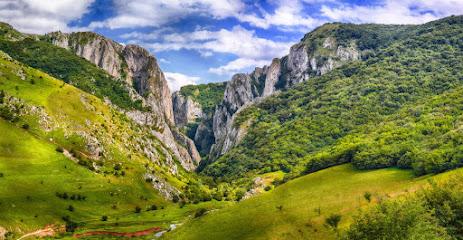
Cetățuia Park
Experience the enchanting beauty of Cetățuia Park in Cluj-Napoca, a serene retreat with stunning views and lush greenery for every traveler.
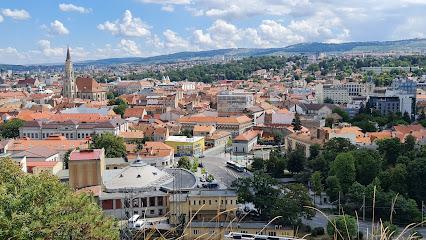
Parc Iulius Mall
Experience the perfect blend of shopping, dining, and nature at Parc Iulius Mall in Cluj-Napoca, a must-visit destination for every traveler.
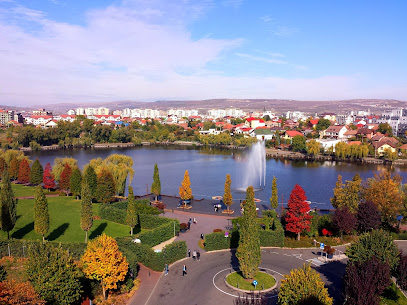
Matthias Rex Monument
Explore the majestic Matthias Rex Monument in Cluj-Napoca, a historical landmark celebrating Hungary's beloved King Matthias Corvinus in a vibrant city setting.
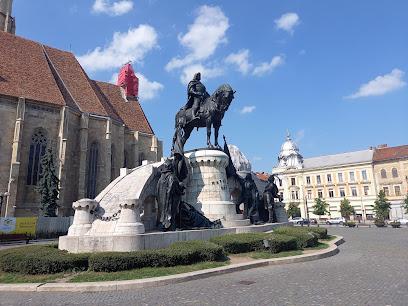
Lucian Blaga National Theatre
Explore the vibrant performing arts scene at Lucian Blaga National Theatre, a cultural cornerstone in Cluj-Napoca, Romania.
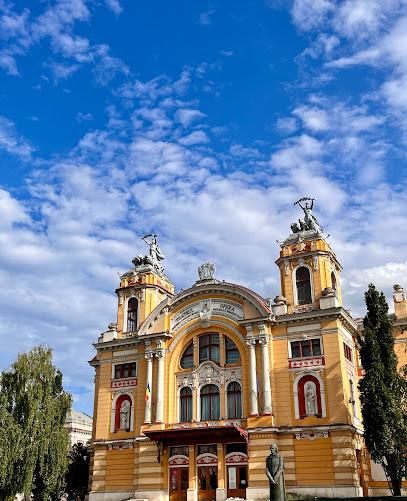
Dormition of the Mother of God Metropolitan Cathedral
Discover the breathtaking Dormition of the Mother of God Metropolitan Cathedral, a stunning example of Byzantine architecture in the heart of Cluj-Napoca.
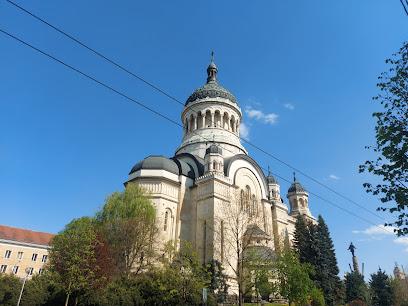
Ethnographic Park Romulus Vuia
Explore Romania's vibrant cultural heritage at Ethnographic Park Romulus Vuia, an open-air museum showcasing traditional architecture and folk art.
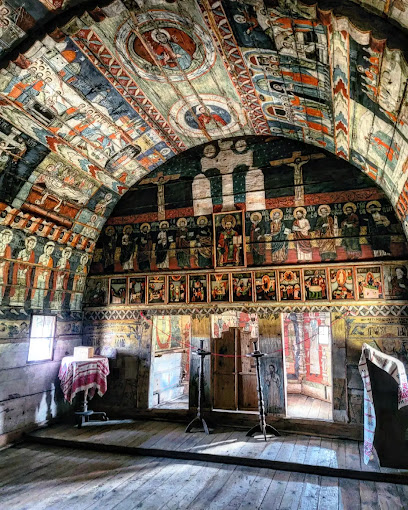
Casino - Centrul de Cultură Urbană
Immerse yourself in Cluj-Napoca's vibrant culture at Casino - Centrul de Cultură Urbană, a hub for art and community events in a historic setting.

Casino - Centrul de Cultură Urbană
Explore the Casino - Centrul de Cultură Urbană, a cultural hub in Cluj-Napoca offering art, history, and entertainment in a beautiful park setting.
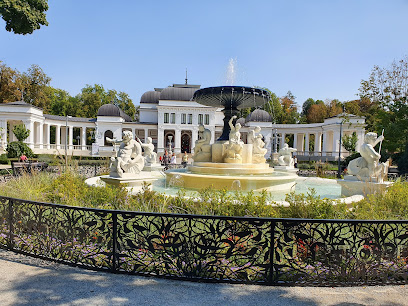
Turnul Croitorilor
Explore Turnul Croitorilor, a historical landmark in Cluj-Napoca offering panoramic views and a captivating glimpse into the city's rich heritage.
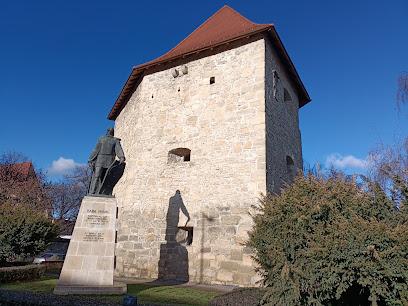
Essential places to dine
Roata
Experience authentic Romanian cuisine at Roata in Cluj-Napoca - where tradition meets taste in a welcoming atmosphere.
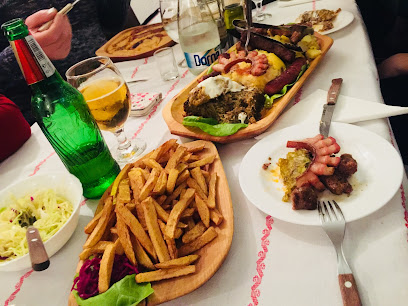
Samsara Foodhouse - Cluj restaurant plant-based
Discover the essence of plant-based dining at Samsara Foodhouse in Cluj-Napoca – where health meets flavor in every dish.
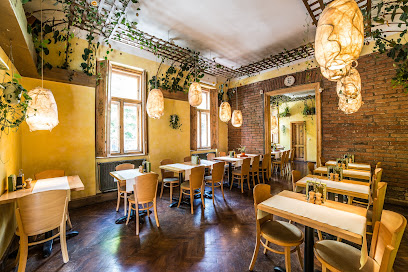
Marhaba
Discover authentic Middle Eastern flavors at Marhaba, Cluj-Napoca's premier destination for delicious Mediterranean dining.
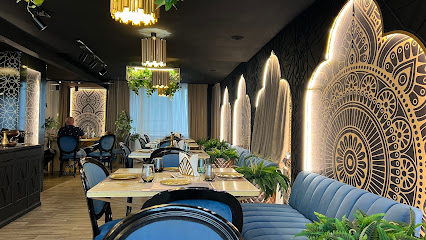
Tortelli Pasta Bar
Savor handmade pasta and authentic Italian flavors at Tortelli Pasta Bar in Cluj-Napoca - a culinary gem for food enthusiasts.
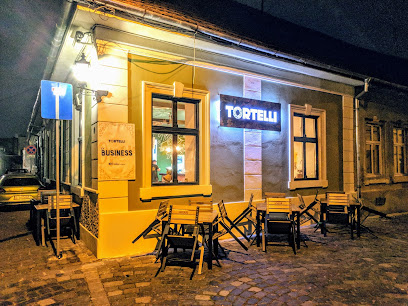
Livada - Cluj
Discover authentic Romanian flavors at Livada Restaurant in Cluj-Napoca—where tradition meets modern dining in a warm atmosphere.
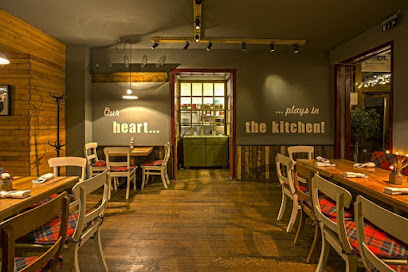
Zama
Discover authentic Romanian cuisine at Zama in Cluj-Napoca – where tradition meets modern flavor in every dish.
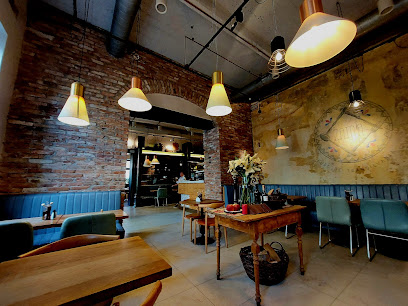
Restaurant Valachia
Discover authentic Romanian flavors at Restaurant Valachia in Cluj-Napoca - where tradition meets taste.
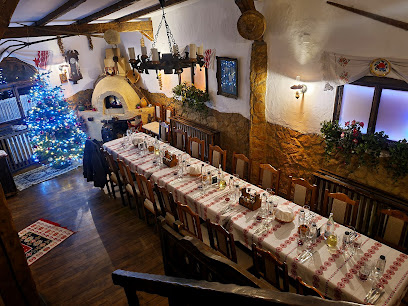
Jaxx
Experience the best of American cuisine at Jaxx in Cluj-Napoca—where delicious food meets an exciting atmosphere.
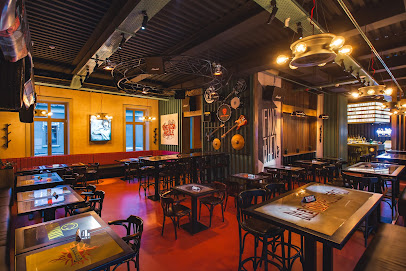
Olivo Bistro
Experience authentic Italian cuisine at Olivo Bistro in Cluj-Napoca - where every meal is a celebration of flavors.
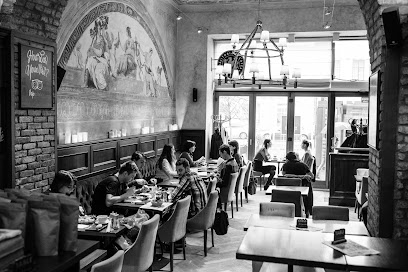
Enigma
Discover the enchanting flavors of Enigma in Cluj-Napoca - where culinary art meets warm hospitality.
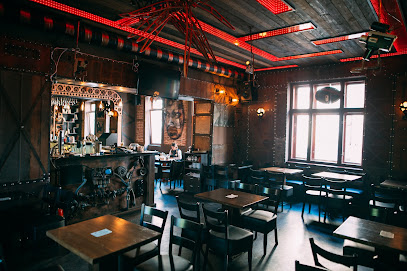
Colin's Gastro Pub
Savor the unique flavors at Colin's Gastro Pub in Cluj-Napoca, where modern cuisine meets traditional Romanian hospitality.
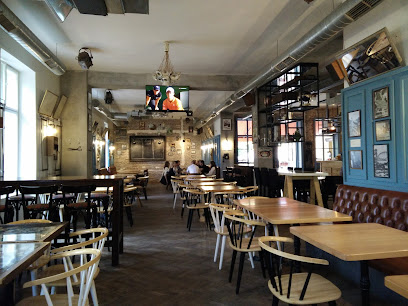
Bistro Viena
Discover the essence of Austrian cuisine at Bistro Viena in Cluj-Napoca - a culinary haven offering delightful dishes in an inviting atmosphere.
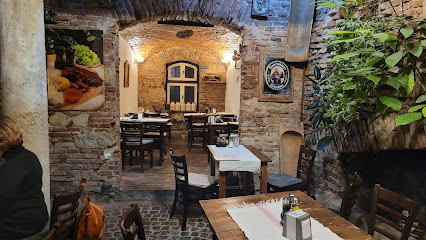
Makeba
Experience exceptional dining at Makeba in Cluj-Napoca—where local flavors meet international cuisine in a warm atmosphere.
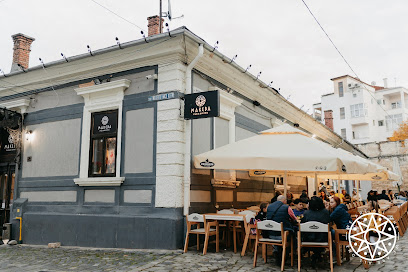
Restaurant Rod
Experience the culinary artistry of Restaurant Rod in Cluj-Napoca, where traditional Romanian flavors meet modern cuisine in an inviting atmosphere.
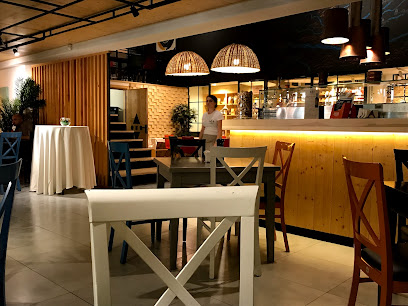
Dacian House Restaurant
Discover authentic Romanian cuisine at Dacian House Restaurant in Cluj-Napoca - where tradition meets flavor.
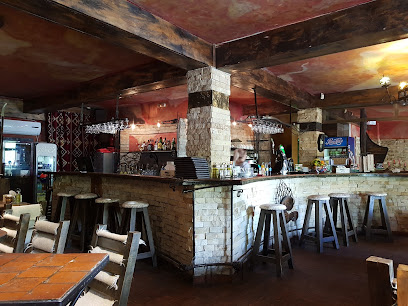
Markets, malls and hidden boutiques
Iulius Mall
Discover the ultimate shopping and dining experience at Iulius Mall, Cluj-Napoca's premier destination for retail therapy and leisure.
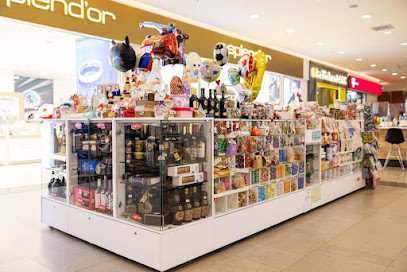
Platinia Shopping Center
Explore Platinia Shopping Center: A Premier Shopping and Dining Experience in Cluj-Napoca with Diverse Stores and Cuisine.
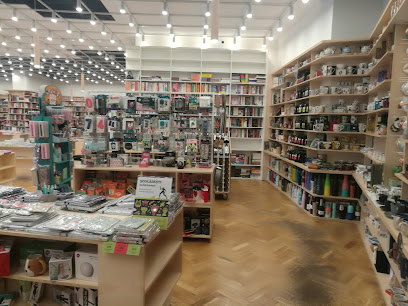
Central Shopping Center
Explore Cluj-Napoca's Central Shopping Center for an unforgettable shopping experience filled with local charm and modern amenities.
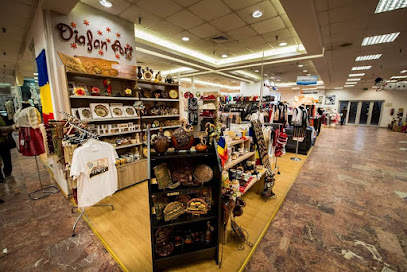
Sigma Shopping Center
Explore Sigma Shopping Center: Cluj-Napoca's vibrant shopping mall, featuring diverse shops, dining, and entertainment for an unforgettable retail experience.
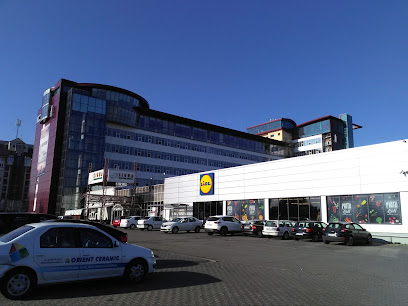
Sora Shopping Center
Discover the vibrant shopping scene and local culture at Sora Shopping Center in Cluj-Napoca, where every visit is a unique experience.
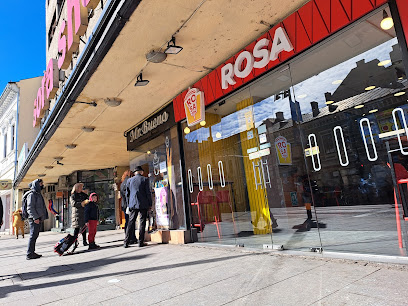
Used Products
Explore Cluj-Napoca's premier destination for used electronics, musical instruments, and gaming gear, offering quality and variety at fantastic prices.
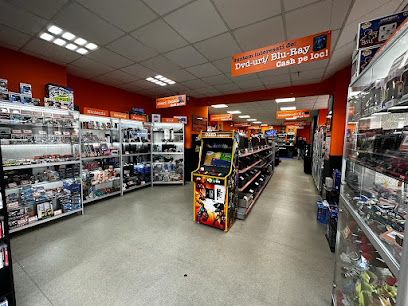
Massimo Dutti
Explore contemporary elegance at Massimo Dutti in Cluj-Napoca, where fashion meets sophistication in every stylish piece.
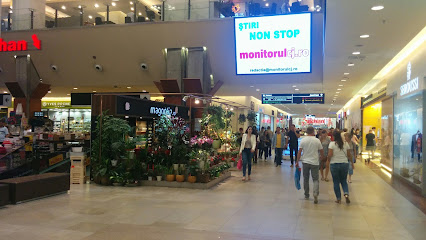
JYSK
Explore JYSK in Cluj-Napoca for stylish, affordable furniture and home decor, blending Scandinavian design with quality craftsmanship.
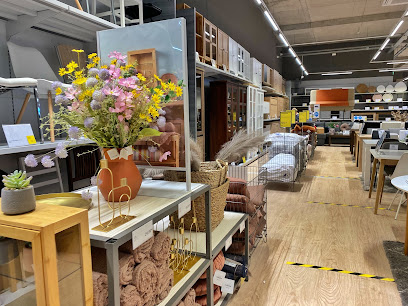
Zara
Explore Zara in Cluj-Napoca for the latest fashion trends and stylish clothing at moderate prices in a vibrant shopping atmosphere.
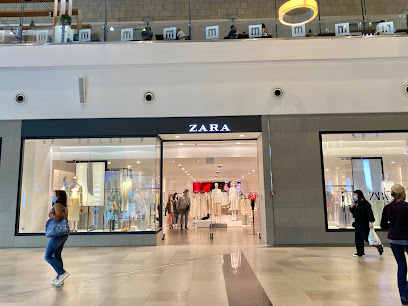
iSTYLE Apple Authorised Reseller - Iulius Mall Cluj
Explore cutting-edge technology at iSTYLE Apple Authorised Reseller in Iulius Mall Cluj, where innovation meets expert advice and a vibrant shopping experience.
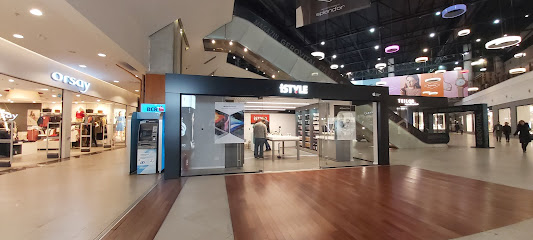
Chic Bijoux - Jewelry Shop
Discover Chic Bijoux in Cluj-Napoca, where exceptional handcrafted jewelry meets local artistry for the perfect gift or personal treasure.
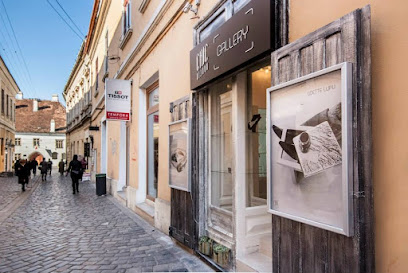
Nike Store
Discover the ultimate destination for sportswear and footwear at Nike Store Cluj, where style meets performance in a vibrant shopping atmosphere.
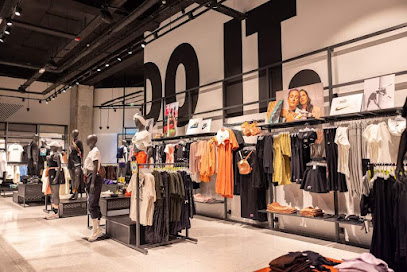
Torry Milano
Discover Torry Milano in Cluj-Napoca - where fashion meets quality with an extensive selection of stylish clothing and accessories for everyone.
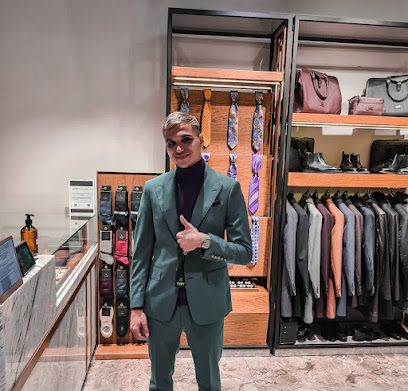
Outwear
Explore Outwear, the ultimate clothing store in Cluj-Napoca, blending local and international styles for a unique shopping experience.
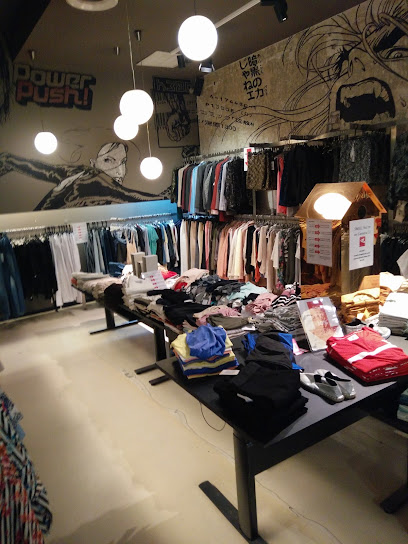
Chic Ville
Explore Chic Ville, Cluj-Napoca's premier furniture store, featuring quality craftsmanship and stunning designs for every home.
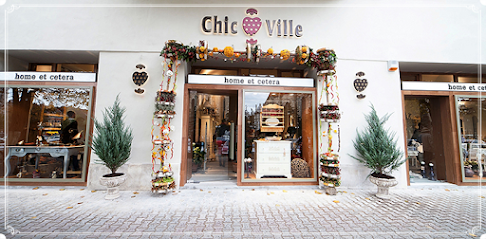
Essential bars & hidden hideouts
The Soviet
Experience the vibrant atmosphere of The Soviet in Cluj-Napoca, where a cozy pub, café, and cocktail bar await to delight your senses.
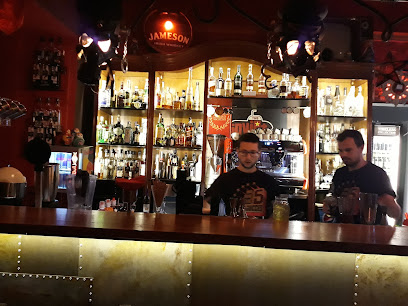
Che Guevara Social Pub
Discover the energetic ambiance of Che Guevara Social Pub in Cluj-Napoca, where great drinks and lively social interactions await you.
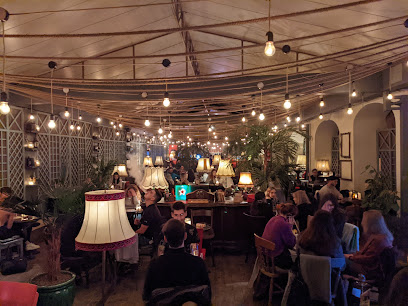
O'Peter's Irish Pub & Grill
Discover the essence of Ireland at O'Peter's Irish Pub & Grill, where hearty cuisine and a lively atmosphere meet in Cluj-Napoca.
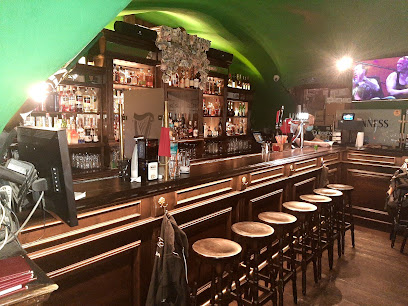
Klausen Pubhouse
Discover the vibrant atmosphere and diverse menu at Klausen Pubhouse in Cluj-Napoca, where local culture and culinary delights come together.
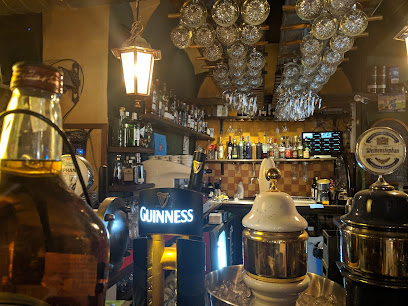
Shadow Cafe-Bar
Discover the vibrant atmosphere of Shadow Cafe-Bar in Cluj-Napoca, where delicious drinks and local culture come together in a unique setting.
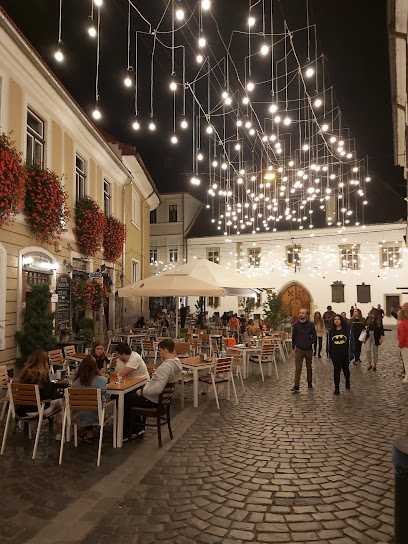
Colin's Gastro Pub
Discover the culinary delights of Colin's Gastro Pub in Cluj-Napoca, where traditional flavors meet modern dining in a vibrant atmosphere.
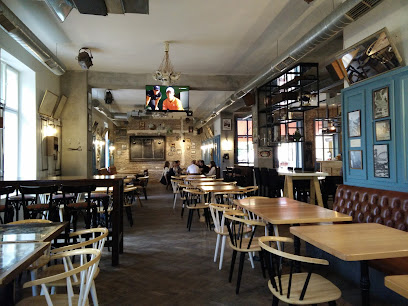
Joben Experience Bar
Discover the vibrant atmosphere and unique menu at Joben Experience Bar, a top cocktail bar and bistro in Cluj-Napoca, Romania.
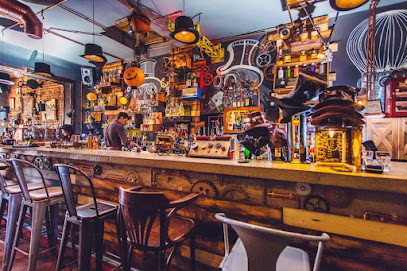
Irish & Music Pub
Discover the vibrant Irish & Music Pub in Cluj-Napoca, where authentic cuisine meets lively music in a warm and inviting atmosphere.
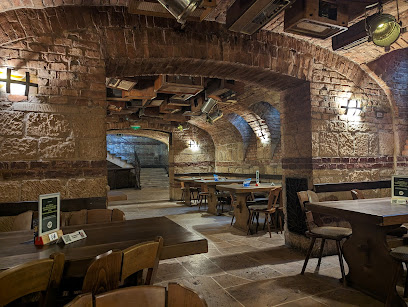
Hardward Pub
Experience the lively atmosphere of Hardward Pub in Cluj-Napoca, where great drinks, live music, and local culture come together.
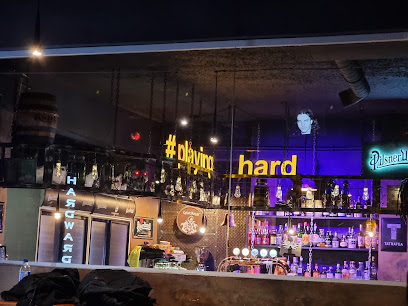
La Țevi
Discover La Țevi, a vibrant pub in Cluj-Napoca offering local drinks, live music, and a lively atmosphere for tourists seeking an authentic experience.
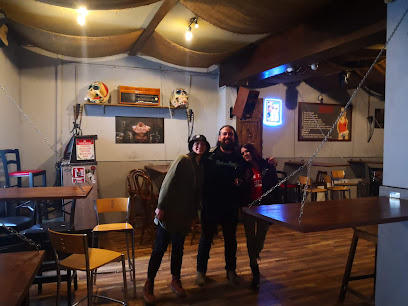
Shto Pub
Experience the vibrant nightlife of Cluj-Napoca at Shto Pub, where delicious cocktails and a lively atmosphere await.
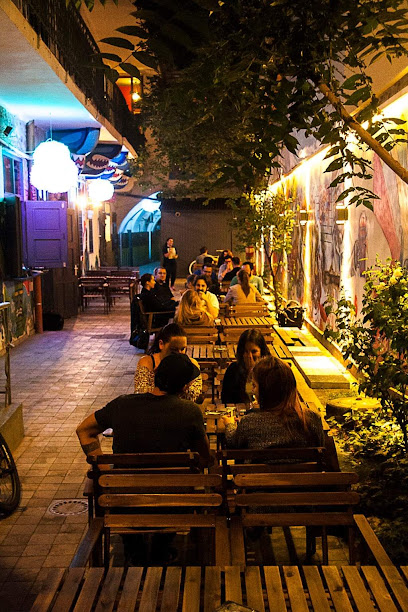
Booha Bar
Experience the lively atmosphere of Booha Bar in Cluj-Napoca, where coffee and cocktails create the perfect blend for relaxation and socializing.
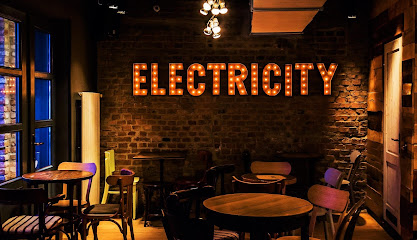
Londoner Pub
Discover the vibrant atmosphere of Londoner Pub in Cluj-Napoca, a lively spot for cocktails, local beers, and unforgettable events.
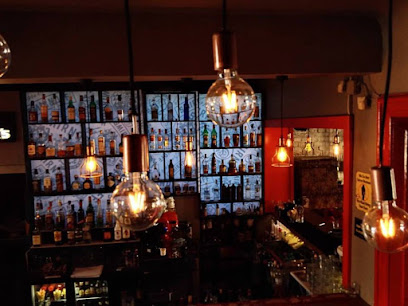
Zorki
Experience the vibrant nightlife at Zorki, Cluj-Napoca's beloved pub offering craft drinks and a lively atmosphere for social gatherings.
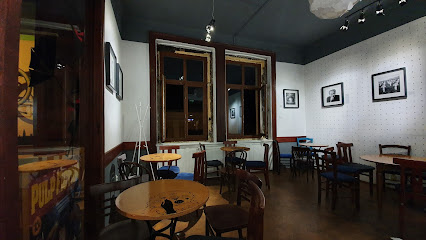
Local Phrases
-
- HelloSalut
[sah-loot] - GoodbyeLa revedere
[lah reh-veh-deh-reh] - YesDa
[dah] - NoNu
[noo] - Please/You're welcomeTe rog
[teh rohg] - Thank youMulțumesc
[mool-tsoo-mesk] - Excuse me/SorryScuzați-mă
[skoo-zahtz mah] - How are you?Ce faci?
[cheh fahch?] - Fine. And you?Bine. Și tu?
[bee-neh. shee too?] - Do you speak English?Vorbiți engleză?
[vor-beetz ehn-gleh-zuh?] - I don't understandNu înțeleg
[noo ehn-tseh-leg]
- HelloSalut
-
- I'd like to see the menu, pleaseAș dori să văd meniul, vă rog
[ush doh-ree sah vad meh-nyool, vuh rohg] - I don't eat meatNu mănânc carne
[noo muh-nuhnk cahr-neh] - Cheers!Noroc!
[noh-rohk] - I would like to pay, pleaseAș dori să plătesc, vă rog
[ush doh-ree sah plah-tesk, vuh rohg]
- I'd like to see the menu, pleaseAș dori să văd meniul, vă rog
-
- Help!Ajutor!
[ah-zhoo-tor] - Go away!Du-te!
[doo-teh] - Call the Police!Sună la Poliție!
[soo-nuh lah poh-leet-see-eh] - Call a doctor!Sună un doctor!
[soo-nuh oon dohk-tohr] - I'm lostM-am rătăcit
[mahm ruh-tuh-cheet] - I'm illSunt bolnav
[soont bohl-nahv]
- Help!Ajutor!
-
- I'd like to buy...Aș dori să cumpăr...
[ush doh-ree sah koom-puhr] - I'm just lookingDoar mă uit
[doh-ar muh ooit] - How much is it?Cât costă?
[kaht kohs-tuh?] - That's too expensiveEste prea scump
[ehs-teh prah skoomp] - Can you lower the price?Puteți să scadeți prețul?
[poo-tehts sah skah-dehts prehts-ool]
- I'd like to buy...Aș dori să cumpăr...
-
- What time is it?Cât este ora?
[kaht ye-steh oh-rah] - It's one o'clockEste ora unu
[ehs-teh oh-rah oo-noo] - Half past (10)Jumătate (zece)
[zhoo-muh-tah-teh (zeh-che)] - MorningDimineața
[dee-mee-nyah-tsa] - AfternoonDupă-amiază
[doo-puh ahm-yah-zuh] - EveningSeara
[seh-ah-rah] - YesterdayIeri
[yehr] - TodayAstăzi
[ah-stuhz] - TomorrowMâine
[muh-ee-neh] - 1Unu
[oo-noo] - 2Doi
[doy] - 3Trei
[treh-ee] - 4Patru
[pah-troo] - 5Cinci
[cheen-ch] - 6Șase
[shah-seh] - 7Șapte
[shahp-teh] - 8Opt
[ohpt] - 9Nouă
[noo-wuh] - 10Zece
[zeh-che]
- What time is it?Cât este ora?
-
- Where's a/the...?Unde este unul/o...
[oon-deh ye-steh oo-noo/oh...] - What's the address?Care este adresa?
[cah-reh ye-steh ah-dreh-sah?] - Can you show me (on the map)?Puteți să-mi arătați (pe hartă)?
[poo-tehts sah-mee ah-ruh-tahts (peh hahr-tah)?] - When's the next (bus)?Când este următorul (autobuz)?
[koon-deh ye-steh oor-muh-toh-rool (ow-toh-booz)?] - A ticket (to ....)Un bilet (spre ....)
[oon bee-let (spreh ....)]
- Where's a/the...?Unde este unul/o...
History of Cluj-Napoca
-
The area of Cluj-Napoca was originally settled by the Dacians, an ancient Indo-European people. The settlement was known as Napuca, and it was an important center of the Dacian Kingdom before the Roman conquest.
-
In 106 AD, the Romans conquered Dacia, and the settlement was re-established as a Roman municipium named Napoca. It grew into an important city in the Roman province of Dacia, complete with typical Roman structures such as amphitheaters, baths, and temples.
-
By the 12th century, Cluj-Napoca, then known as Kolozsvár, became part of the Kingdom of Hungary. The city received its first urban charter in 1316 from Charles I of Hungary, which allowed it to develop into a significant medieval trade center.
-
Cluj-Napoca flourished during the Renaissance, becoming a center for culture and education. It is the birthplace of Matthias Corvinus, one of Hungary’s most famous kings, who ruled from 1458 to 1490. His reign is noted for significant cultural and academic advancements.
-
Following the Battle of Mohács in 1526, Cluj came under Habsburg rule and later became part of the Austro-Hungarian Empire. The city experienced economic growth and modernization during this period, with the establishment of universities and cultural institutions.
-
After World War I and the dissolution of the Austro-Hungarian Empire, Cluj-Napoca became part of Romania following the Treaty of Trianon in 1920. This period marked significant demographic and administrative changes in the city.
-
During World War II, Cluj-Napoca was ceded to Hungary by the Second Vienna Award in 1940, only to be retaken by Romania in 1944. The post-war era was marked by heavy industrialization and urbanization under the communist regime.
-
After the fall of Communism in 1989, Cluj-Napoca transitioned to a market economy. The city has since become one of Romania’s most vibrant economic and cultural hubs, known for its universities, tech industry, and rich historical heritage.
Cluj-Napoca Essentials
-
Cluj-Napoca is well-connected by air, rail, and road. The Cluj Avram Iancu International Airport (CLJ) is the main gateway, with regular flights from major European cities. The airport is about 9 kilometers from the city center and is accessible by taxi, bus, or car rental. For those traveling by train, Cluj-Napoca Railway Station offers connections to various Romanian cities and international destinations. Long-distance buses also operate from major cities in Romania and neighboring countries, making it accessible by road.
-
Cluj-Napoca has a well-developed public transportation system, including buses, trams, and trolleybuses. Tickets can be purchased at kiosks or through mobile apps. Taxis and ride-sharing services like Uber and Bolt are readily available. For a more local experience, consider renting a bicycle or using the city's bike-sharing program. Walking is also a great way to explore the compact city center.
-
The official currency is the Romanian Leu (RON). Credit and debit cards are widely accepted in hotels, restaurants, and shops. ATMs are plentiful throughout the city. While many establishments accept card payments, it's a good idea to carry some cash for smaller vendors or markets.
-
Cluj-Napoca is generally a safe city for tourists. However, standard precautions should be taken, such as avoiding poorly lit areas at night and keeping an eye on personal belongings in crowded places. Areas like Mărăști and Mănăștur are known for higher petty crime rates, so extra caution is advised. Emergency services can be reached by dialing 112.
-
In case of an emergency, dial 112 for police, fire, or medical assistance. Cluj-Napoca has several hospitals and clinics, including the Cluj County Emergency Hospital. Pharmacies are well-stocked and can provide over-the-counter medications. It is advisable to have travel insurance that covers medical emergencies.
-
Fashion: Do dress casually but neatly. Avoid overly revealing clothing, especially when visiting religious sites. Religion: Do show respect in churches and monasteries; women should cover their heads, and men should remove hats. Public Transport: Do validate your ticket upon boarding. Don't eat or drink on public transport. Greetings: Do greet people with a handshake. A polite 'Bună ziua' (Good day) is appreciated. Eating & Drinking: Do try local dishes and wines. Don't refuse food or drink offered by locals, as it can be seen as impolite.
-
To experience Cluj-Napoca like a local, visit the Central Market (Piața Centrală) for fresh produce and local products. Take a stroll in the Central Park (Parcul Central) or enjoy a coffee at one of the many cafés. Attend a local festival or cultural event, such as the Transilvania International Film Festival (TIFF). Engaging with locals can provide unique insights into the city's culture and history.
Trending Landmark in Cluj-Napoca
-
Central Park Simion Bărnuțiu
-
Alexandru Borza Botanical Garden
-
Cheile Turzii
-
Cetățuia Park
-
Unirii Square
-
Parc Iulius Mall
-
Students' Cultural House
-
Ethnographic Park Romulus Vuia
-
Turnul Croitorilor
-
The Art Museum
-
Ethnographical Museum of Transylvania
-
Steampunk Transylvania
-
Biserica Piaristă Cluj-Napoca
-
The Statue of Avram Iancu
-
The National Museum of the History of Transylvania
Nearby Cities to Cluj-Napoca
-
Things To Do in Baia Mare
-
Things To Do in Sighisoara
-
Things To Do in Deva
-
Things To Do in Satu Mare
-
Things To Do in Debrecen
-
Things To Do in Arad
-
Things To Do in Nyiregyhaza
-
Things To Do in Râmnicu Vâlcea
-
Things To Do in Târgu Jiu
-
Things To Do in Brasov
-
Things To Do in Mukachevo
-
Things To Do in Suceava
-
Things To Do in Uzhhorod
-
Things To Do in Pitesti
-
Things To Do in Chernivtsi












